 Pancreatitis is inflammation of the pancreas, and it can be deadly. Some veterinarians classify the condition as either acute or chronic, but the chronic condition is really just recurring bouts of acute pancreatitis flaring up. If caught early enough, and if treated holistically, these recurring bouts don’t usually happen.
Pancreatitis is inflammation of the pancreas, and it can be deadly. Some veterinarians classify the condition as either acute or chronic, but the chronic condition is really just recurring bouts of acute pancreatitis flaring up. If caught early enough, and if treated holistically, these recurring bouts don’t usually happen.
Unfortunately, pancreatitis isn’t often diagnosed until the disease has reached a life-threatening, critical stage. This is because symptoms of early stage pancreatic disease are not always noticeable, and are often thought to be relatively harmless. Frequently, it’s not until the animal has a violent attack of vomiting or bloody diarrhea, or it collapses, that veterinary attention is sought.
Symptoms of a pancreatic disorder include:
 Fever
Fever- Vomiting
- Depression
- Abdominal pain
- Hunched back
- Weakness
- Weight loss
- Oily stools that look like putty
- Diarrhea, sometimes with blood
- Crying and restlessness
The main symptoms of fever, vomiting, and depression are common to other diseases, but many of those diseases are also deadly, so if your pet is displaying these symptoms, see a holistic veterinarian right away.
 Pancreatitis is most common in overweight dogs and cats who eat commercial pet foods. A diet low in quality protein and high in carbohydrates or fat puts strain on the pancreas. Healthy pets do need a certain amount of fat, but cooked and rancid fats are harmful. And the fats used in commercial pet foods are highly overcooked and often come from rancid sources, sources unfit for human consumption.
Pancreatitis is most common in overweight dogs and cats who eat commercial pet foods. A diet low in quality protein and high in carbohydrates or fat puts strain on the pancreas. Healthy pets do need a certain amount of fat, but cooked and rancid fats are harmful. And the fats used in commercial pet foods are highly overcooked and often come from rancid sources, sources unfit for human consumption. 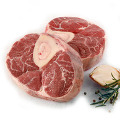 As well, most commercial pet foods are too high in carbohydrates because carbohydrate sources are cheaper than meat and are often used as fillers. These cheap carbohydrates become glucose after digestion, and if the body is flooded with glucose, the pancreas becomes overworked. Vaccinations and corticosteroids are also thought to be contributing factors.
As well, most commercial pet foods are too high in carbohydrates because carbohydrate sources are cheaper than meat and are often used as fillers. These cheap carbohydrates become glucose after digestion, and if the body is flooded with glucose, the pancreas becomes overworked. Vaccinations and corticosteroids are also thought to be contributing factors.
In Keep Your Pet Healthy the Natural Way, Pat Lazarus quotes Drs. Robert and Marty Goldstein as saying, “Pancreatitis is the root of many, many other conditions. Once the pancreas starts to deteriorate, other organs often follow.” Pancreatitis can cause permanent damage to the pancreas. If the islet cells have been damaged, the ability to properly control insulin will fail, and the animal will probably become diabetic. Diabetes, itself, contributes to the failure of other organs and systems within the body. The doctors Goldstein also believe that improper diet is usually at the root of these malfunctions.
If the islet cells have been damaged, the ability to properly control insulin will fail, and the animal will probably become diabetic. Diabetes, itself, contributes to the failure of other organs and systems within the body. The doctors Goldstein also believe that improper diet is usually at the root of these malfunctions.
In Dr. Pitcairn’s Complete Guide to Natural Health for Dogs and Cats, Richard Pitcairn agrees that diet is a likely cause, but he also states, “I think it will soon be apparent that pancreatitis is another of the immune diseases, like hyperthyroidism in cats.”
He sums up four things you can do to prevent a subsequent attack if your pet has suffered a bout of pancreatitis:
- Feed a natural diet low in fat and high in quality
- Don’t allow indulgences in junk food
- Avoid vaccinations as much as possible
- Keep your pet’s weight within normal limits
Herbal and Naturopathic Help
While prevention is simply a matter of feeding an appropriate well-balanced, healthy, natural, raw diet, treatment is not so simple. This is because the diet must be improved but the change can’t be sudden. You will need the help of a holistic veterinarian. Do not attempt to treat pancreatitis on your own.
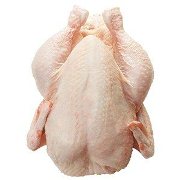 Healthy raw foods are to be gradually introduced. Minimize fats that may irritate the pancreas. Make sure grains are high quality and well cooked. All ingredients should be organic. Antioxidants are important, and are found in vegetables and fish oils. They are also found in fruits, but you want to avoid feeding fruits to a pet with pancreatitis.
Healthy raw foods are to be gradually introduced. Minimize fats that may irritate the pancreas. Make sure grains are high quality and well cooked. All ingredients should be organic. Antioxidants are important, and are found in vegetables and fish oils. They are also found in fruits, but you want to avoid feeding fruits to a pet with pancreatitis.
If you suspect your pet may have a food allergy, it’s really important to find out what the allergen is. Feeding your dog or cat a food they are allergic to while they have pancreatic damage is beckoning an attack.
Exercise and uncontaminated water are also important for both the prevention and treatment of pancreatitis. If your pet is in an acute stage of the disease, talk to your holistic veterinarian about an exercise plan.
Pancreatic glandular supplements are often used in treatment. As well, the following supplements can be helpful because the body has a hard time digesting and absorbing nutrients when the pancreas is damaged.
Helpful Supplements:
- A multi-vita-mineral containing A, C, E, D, and B-complex vitamins, and trace minerals such as magnesium, calcium, zinc, and selenium
- Omega-3 fatty acids,such as fish oil, to help decrease inflammation and improve immune system health
 Probiotics containing Lactobacillus acidophilus and other beneficial bacteria
Probiotics containing Lactobacillus acidophilus and other beneficial bacteria- Digestive enzymes
- Coenzyme Q10
- Extra vitamin C
- Alpha lipoic acid
Herbs used in pancreatic treatments:
- Yarrow is the thought to be the best herbal remedy for pancreatitis, and is often used with some of the other herbs listed below. It reduces pancreatic inflammation and improves blood circulation in the pancreas.
- Green tea is an antioxidant. Use caffeine free products. You may also prepare teas from the leaf of this herb.
- Holy basil is an antioxidant. It can have a blood thinning effect.
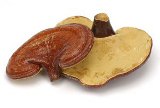 Rhodiola is considered an “adaptogen” that helps the body adapt to various stresses. It’s also an immune system booster.
Rhodiola is considered an “adaptogen” that helps the body adapt to various stresses. It’s also an immune system booster.- Cat’s claw is an anti-inflammatory and immune system booster. It can interact with many medications and is contra-indicated for leukemia and Parkinson’s patients.
- Reishi mushroom is an anti-inflammatory and immune system booster. High doses of Reishi can have a blood thinning effect.
- Indian gooseberry is a powerful antioxidant and one of the richest natural sources of vitamin C. Studies suggest that this herb can be used to prevent pancreatitis in dogs and cats.
- Grape seed extract is an antioxidant. It can have a blood thinning effect and may interact with other medications. While grapes are bad for dogs, grape seed extract is not. The chemical composition of the two is very different.
Many doctors like to use Chinese herbs such as:
 Licorice root (Glycyrrhiza glabra)
Licorice root (Glycyrrhiza glabra)- Ginger root (Zingiber officinale)
- Asian ginseng (Panax ginseng)
- Peony root (Paeonia officinalis)
- Cinnamon Chinese bark (Cinnamomum verum)
Some veterinary naturopaths believe that eating a few smaller meals throughout the day, as opposed to one large meal, may help a pet with a damaged pancreas because blood sugars are more evenly dispersed. Others disagree. Feeding pets too frequently can cause other problems, such as digestive and urinary tract issues. Talk with your holistic veterinarian about how frequently to feed your dog or cat, as each pet’s situation is different. If your pet has a pancreatic problem, most veterinarians would probably agree that feeding three times a day is appropriate.
Homeopathy
Do not try to treat pancreatitis on your own. You must see a homeopathic veterinarian before using any of the following treatments.
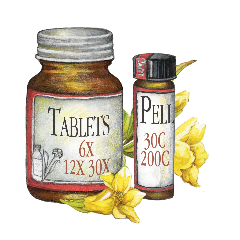 Nux vomica 30c or Belladonna 30c are often used as initial treatments. Use Nux vomica if your pet is very irritable and withdrawn and doesn’t have a fever. If your pet has a fever, and pancreatitis symptoms have seemed to appear suddenly, give Belladonna. Other indications for the latter include dilated pupils and sensitivity to stimulus such as light, sound, and touch. Give one or two tablets every four hours for a total of three treatments. Allow no food or drink within fifteen minutes of treatment.
Nux vomica 30c or Belladonna 30c are often used as initial treatments. Use Nux vomica if your pet is very irritable and withdrawn and doesn’t have a fever. If your pet has a fever, and pancreatitis symptoms have seemed to appear suddenly, give Belladonna. Other indications for the latter include dilated pupils and sensitivity to stimulus such as light, sound, and touch. Give one or two tablets every four hours for a total of three treatments. Allow no food or drink within fifteen minutes of treatment.
If twenty-four hours passes, and there is no sign of improvement, the following treatments may be used:
If there is a great deal of vomiting, use Iris versicolor 6c. Homeopaths consider this one of the best treatments for pancreatitis. 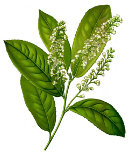 Other indications include drooling, abdominal pain, and watery, greenish stools.
Other indications include drooling, abdominal pain, and watery, greenish stools.
For general cases of acute pancreatitis, with symptoms that include abdominal pain and clay colored stools, give Chionanthus 6c.
If there is coughing and difficulty breathing, use Spongia tosta 6c.
If there have been no signs of thirst, and your pet is trying to find cool places to rest, and becomes clingy and whiny, give Pulsatilla 30c.
If there is excessive thirst, vomiting, and a swollen or dropped belly due to accumulated fluid in the peritoneal (abdominal) cavity, Apocynum cannabinum 30c.
If stools are consistently frothy and fatty, and your pet is thin or losing weight while having a voracious appetite (common with pancreas problems because of the inability to absorb nutrients), give Iodum 6c. Other indications for this treatment include a dry coat and possible jaundice.
If your pet also has hepatitis, and the stools are pasty and clay-colored, give Phosphorus 30c.
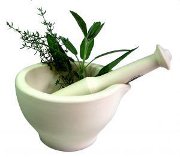 If your pet is elderly, and is having trouble swallowing because of tonsillar inflammation, give Baryta muriatica 30c.
If your pet is elderly, and is having trouble swallowing because of tonsillar inflammation, give Baryta muriatica 30c.
One of the problems with pancreatitis is the formation of scar tissue in the pancreas. Silicea 30c helps reduce scar tissue.
Your homeopathic veterinarian might also use the Pancreas 30c or Morgan 30c nosodes, depending on your pet’s condition.